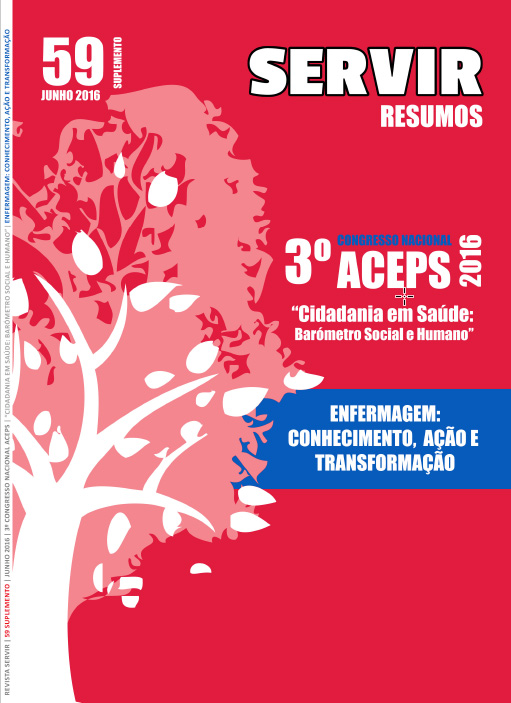Personalidade e regresso ao trabalho da pessoa após cardiopatia isquemica
DOI:
https://doi.org/10.48492/servir0259.23191Palavras-chave:
Personalidade, Neuroticismo, Extroversão, Regresso ao trabalho, Reinserção socioprofissional, Cardiopatia isquémicaResumo
Introdução
O regresso ao trabalhar tem sido considerado um problema de saúde pública e uma das principais metas da reabilitação cardiovascular porque tem benefícios económicos para a sociedade, em termos do aumento de produtividade e redução de custos, e também melhora o bem-estar individual e a segurança económica dos pacientes e suas famílias.
Diversas variáveis médicas, psicológicas e sociodemográficas têm sido relacionadas com o regresso ao trabalho após cardiopatia isquémica, sendo atribuído um peso maior às variáveis sociopsicológicas.
Objetivo
Determinar a prevalência do regresso ao trabalho e relacionar a influência da personalidade no regresso ao trabalho da pessoa após cardiopatia isquémica.
Métodos
Estudo de carácter analítico, correlacional e transversal, realizado com 164 doentes com idade inferior ou igual a 65 anos, com diagnóstico clínico de cardiopatia isquémica, decorridos três a seis meses após a alta hospitalar. A recolha de dados foi efetuada através de um questionário (caracterização sociodemográfica, escala de Graffar e o Inventário de Personalidade (Vaz-Serra, Ponciano e Freitas, 1980) autoaplicado na consulta de follow-up de cardiologia. Foi utilizado o teste de análise discriminante processado através do programa SPSS versão 20.0 para Windows.
Resultados
Os doentes apresentaram uma média de idade de 54.2 anos ± 7.4 anos, 81.7% eram do sexo masculino, 96.3% eram “casados”, 41.5% pertenciam à Classe III da escala de Graffar.
A prevalecia do regresso ao trabalho foi de 58.5%. A análise discriminante pelo método stepwise permitiu a obtenção de um modelo final que permite a diferenciação dos dois grupos. O neuroticismo revelou-se como pedidor do regresso ao trabalho da pessoa após cardiopatia isquémica.
Conclusões
Os resultados são consistentes com alguns estudos nacionais e internacionais, confirmando a relação entre personalidade e o regresso ao trabalho.
O regresso ao trabalho após um evento cardíaco é um processo multidimensional que parece ser fortemente influenciado por fatores psicossociais, entre os quais a personalidade. Assim, ao identificar os traços da personalidade do indivíduo, nomeadamente o pensamento, os sentimentos, o comportamento, a forma de agir nas atividades do dia-a-dia, seria possível prever comportamentos associados ao processo de saúde e doença.
Downloads
Downloads
Publicado
Como Citar
Edição
Secção
Licença
No intuito de promover a livre circulação do conhecimento, a Servir funciona em regime de acesso livre (open access). Todo o seu conteúdo está disponível e protegido sob a licença Creative Commons (CC BY 4.0).
A revista permite o auto-arquivo em repositórios institucionais de todas as versões, podendo ficar imediatamente disponíveis.


